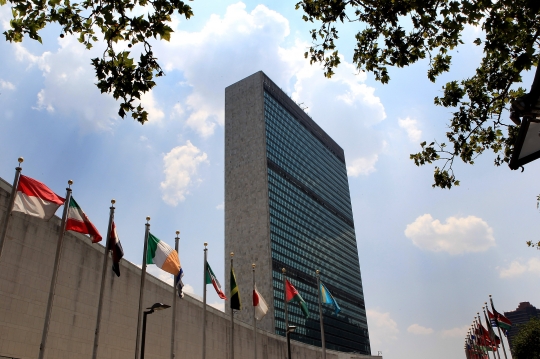| Online: | |
| Visits: | |
| Stories: |

| Story Views | |
| Now: | |
| Last Hour: | |
| Last 24 Hours: | |
| Total: | |
U.n. Report Asserts Encryption As A Human Right In The Digital Age
Musings On The Finite Statist Machine
U.N. REPORT ASSERTS ENCRYPTION AS A HUMAN RIGHT IN THE DIGITAL AGE
BY DAN FROOMKIN
THURSDAY AT 6:46 PM
Encryption is not the refuge of scoundrels, as Obama administration law-enforcement officials loudly proclaim – it is an essential tool needed to protect the right of freedom of opinion and expression in the digital age, a new United Nations report concludes.
Encryption that makes a communication unintelligible to anyone but the intended recipient creates “a zone of privacy to protect opinion and belief,” says the report from David Kaye, who as Special Rapporteur on the promotion and protection of the right to freedom of opinion and expression is essentially the U.N.’s free speech watchdog.
The significance of encryption extends well beyond political speech, Kaye writes. “The ability to search the web, develop ideas and communicate securely may be the only way in which many can explore basic aspects of identity, such as one’s gender, religion, ethnicity, national origin or sexuality.”
Encryption, like anonymity, is essential to artists, journalists, whistleblowers, and many other classes of people, the report says.
And far from banning or weakening encryption, governments should embrace and strengthen it, Kaye writes. He specifically urges the U.S. Congress to “prohibit the Government from requiring companies to weaken product security or insert back-door access measures.”
Obama administration officials have been advocating for encryption with some sort of built-in measure that law enforcement could circumvent, either an intentional weakness that creates a “back door,” or some sort of split “master key”.
Newly-installed Attorney General Loretta Lynch on Wednesday became the latest to engage in fear-mongering, saying she had “grave concerns” about encryption’s use by “people whose sworn duty is to harm Americans here and abroad.”
National Security Agency director Mike Rogers took a slightly more nuanced view on Wednesday, ZDNet reported. “You’re not going to hear me say that encryption is a bad thing. I don’t think it is a bad thing. Encryption is not bad. Encryption is a fundamental part of the future; I think it would be ridiculous to pretend otherwise,” Rogers told a cyberwarfare conference in Estonia.
Source: http://americankabuki.blogspot.com/2015/05/un-report-asserts-encryption-as-human.html




